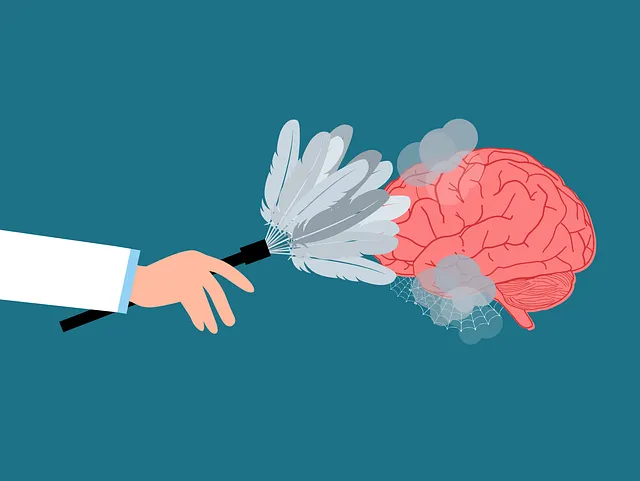Cultural competency in healthcare is vital for addressing mental health concerns in diverse societies. Kaiser Permanente Denver distinguishes itself by prioritizing training in cultural competency for its therapists, ensuring they can provide inclusive, culturally sensitive care to patients from various backgrounds. Through continuous learning and self-awareness exercises, these therapists tailor self-care practices to cultural traditions, enhancing therapy outcomes and patient satisfaction. Continuous improvement strategies, including workshops and peer discussions, enable healthcare providers to manage biases and improve communication skills, ultimately offering compassionate, high-quality care to all patients, answering the question 'does Kaiser have good therapists in Denver?' with a resounding yes.
In today’s diverse healthcare landscape, cultural competency among providers is more critical than ever. This article explores how organizations like Kaiser Permanente Denver are leading the way in therapist training to address cultural biases and improve patient outcomes. We delve into the significance of cultural competency, highlighting its benefits for patients and practices alike. Additionally, we present effective strategies for continuous learning, ensuring healthcare professionals remain equipped to serve a varied patient population, with a focus on what makes Kaiser’s approach in Denver stand out.
- Understanding Cultural Competency in Healthcare: Why It Matters
- Kaiser Permanente Denver's Approach to Therapist Training
- Benefits of Culturally Competent Therapists for Patients
- Effective Strategies for Continuous Learning and Improvement
Understanding Cultural Competency in Healthcare: Why It Matters

Cultural competency in healthcare refers to the ability of providers to understand and appreciate the diverse cultural backgrounds, beliefs, and values of their patients. It involves recognizing and respecting these differences in a way that improves patient care and satisfaction. In today’s diverse society, where folks from various ethnic, racial, and cultural groups seek healthcare services, this competence is more crucial than ever.
When it comes to mental health, such as anxiety relief and self-care routine development for better mental health, cultural competency plays a significant role. For example, therapists who are culturally competent can tailor their approaches to align with the patient’s specific needs, ensuring effective treatment. This is especially important in areas like Denver, where Kaiser offers services known for their quality, including programs designed to support mental health education and address anxiety. Effective cultural competency training enables healthcare providers to create inclusive environments, facilitate open communication, and ultimately improve outcomes for all patients, regardless of their background.
Kaiser Permanente Denver's Approach to Therapist Training

Kaiser Permanente Denver takes a comprehensive approach to therapist training, recognizing that cultural competency is crucial in providing quality mental health care. Their program focuses on equipping therapists with the skills to navigate diverse patient backgrounds and promote inclusive healing environments. This involves intensive training sessions where professionals learn to understand and appreciate various cultural perspectives, ensuring they can offer effective treatment regardless of a patient’s background.
The organization emphasizes the importance of self-esteem improvement and stress management workshops as integral parts of their advocacy. By fostering an environment that values cultural competency, Kaiser Permanente Denver aims to not only improve patient outcomes but also ensure that its therapists are well-equipped to handle the mental health needs of the diverse communities they serve, making them a top choice for those seeking good therapists in Denver with a commitment to cultural sensitivity and holistic care.
Benefits of Culturally Competent Therapists for Patients

When patients work with therapists who are culturally competent, they benefit from a deeper level of understanding and care tailored to their unique backgrounds and experiences. In the diverse communities of Denver, having therapists that embrace and understand various cultural contexts fosters an environment where patients feel seen, heard, and respected. This sensitivity can significantly enhance therapy outcomes, encouraging open communication and building trust between patient and therapist. For instance, therapists who are knowledgeable about a patient’s cultural traditions might employ practices that align with their values, making self-care more meaningful and effective.
For those seeking healthcare services in Denver, such as those associated with Kaiser, having culturally competent therapists is essential. This competency does not only facilitate better access to care but also improves patient satisfaction and outcomes. By recognizing and appreciating cultural differences, these therapists can offer personalized treatment plans, ensuring that self-care practices are inclusive and beneficial for all patients, regardless of their ethnic or cultural background. Thus, healthcare provider cultural competency training plays a pivotal role in enhancing the overall well-being of patients and promoting confidence-boosting experiences during their journey to better mental health.
Effective Strategies for Continuous Learning and Improvement

Effective strategies for continuous learning and improvement are essential components of healthcare provider cultural competency training. Organizations like Kaiser in Denver, known for their quality therapists, emphasize self-awareness exercises to help providers recognize and navigate their own biases. Regular workshops, cultural sensitivity trainings, and peer discussions foster an environment where professionals can openly explore diverse perspectives, improve communication skills, and adapt their practices accordingly.
Additionally, integrating self-care routine development for better mental health is vital. By prioritizing their own well-being, healthcare providers enhance their ability to offer compassionate care. Techniques such as mindfulness, stress management, and anxiety relief exercises not only benefit individual therapists but also positively impact their interactions with patients from various cultural backgrounds. These strategies collectively contribute to a more inclusive and effective healthcare system, ensuring that everyone receives the highest quality of care, regardless of their cultural identity.
Healthcare provider cultural competency training is no longer a nice-to-have, but an essential requirement in modern medicine. Organizations like Kaiser Permanente Denver are leading the way by implementing comprehensive programs that equip therapists with the skills to understand and address diverse patient needs. The benefits are clear: culturally competent therapists improve patient outcomes, foster trust, and create a more inclusive healthcare environment. For those seeking high-quality care, considering whether does Kaiser have good therapists in Denver should now include an evaluation of their cultural competency training and commitment to continuous improvement.






